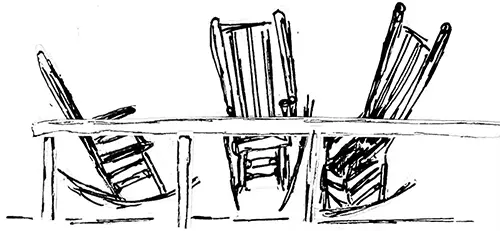agrarianism 51
What We Lose When We Lost the Plot
He who has a piece of ground to call his own is not truly bereft, no matter what else is lost.
“I Wouldn’t Take Nothing for It”: An Appreciation of Love for the Land
“Heeding lessons from farmers who persist in place, we can embrace these virtues. Rather than give up or get out, we can dig in. Rather than go big, we can…
Agrarian Theology and its Limits: A Review of Agrarian Spirit
I am not faulting Wirzba for failing to include these examples of more conservative Christians who practice agrarianism. But I would ask whether his theology of agrarianism, written in an…
Is Joel Salatin the Problem? Reflecting on The Last Pig
My infrequent episodes of bringing death to animals have always taken an emotional toll on me. Making a weekly trip to the slaughterhouse for over a decade, as Comis did,…
A Review of Verlaine Stoner Mcdonald’s The Red Corner
In her 2010 book, The Red Corner: The Rise and Fall of Communism in Northeastern Montana, Verlaine Stoner McDonald resurrects the surprising but largely forgotten episode of agrarian radicalism in…
Grace Olmstead’s Uprooted Idaho, and My Own
Uprooted is partly a memoir of her extended family, partly a paean to a way of life that is both dying and which she never really understood while she grew…
Augustine the Agrarian
The world is God’s farm, his flourishing garden. We find ourselves as his workers in his fields, called to cultivate the land and the souls, minds, and bodies of ourselves…
Yearning for Eden: Horace and the Romance of Agrarianism
Deep within the Western psyche and tradition is this yearning for return. Horace, more than any other of the grandiose poets of antiquity, captured that call, that cry, for return—a…
Why Heidegger Stayed in the Provinces—and Why it is Not Time for the ‘Robert Penn Warren Option’
In 1934, the philosopher Martin Heidegger, tired of his ill-inclined maneuvering to become the celebrity intellectual who would steer the Nazi Party into greatness, resigned from his rectorate at Freiburg…
Chesterton and Belloc are not Enough
In preparing a new volume of essays titled Who Owns America? A New Declaration of Independence (1936), Allen Tate and Herbert Agar sought to extend the political argument for agrarianism beyond…
J. Drew Lanham’s Clear-Eyed Vision of the Land
“I think of land and hope that others are thinking about it, too.” Those of us who try to think about land have much to learn from J. Drew Lanham’s…
What Wendell Berry’s Brush Teaches Us About Capitalism, Community, and “Inevitability”
[Cross-posted to In Medias Res] The Art of Loading Brush: New Agrarian Writings, the latest collection of writings by Wendell Berry, isn't a perfect book, nor the perfect expression of…
And Then Came the Chickens, Part Two: A Dispatch from Dumb-Ass Acres
“Bawk-bawk be-gehk!” she cries, and I know just where she’s coming from.
A New FPR Book by John Crowe Ransom
Ransom objected to a false dilemma.
Agrarian Fireworks
If you’re like me, holidays leave you feeling unusually contemplative, I suppose because the everyone-is-doing-it mentality awakens in us the long-slumbering cultural anthropologist. Holidays cause me to wonder why, exactly, we do what we do…
The Holy Earth and Liberty Hyde Bailey’s Front Porch Cred
He wrote sixty-five books and had a hand in another hundred and thirty-five.
Hanging Out with, and Learning from, Some Thoroughly Material Benedictines
[Cross-posted to In Medias Res] A few weeks ago I was able to, once again, do something that I enjoy doing immensely--take a group of students out on a local…
Something’s Fishy–But Not Very–At Dinnertime
Ingham County, MI As darkness falls upon what a friend of mine charitably calls “Jack-Ass Acres,” and as the promise of rain comes with the moving clouds at the end…
History as Parable
History is never merely history.
Abbeville Institute Summer School: “Understanding the South and the Southern Tradition.”
Many FPR readers may be interested in attending the Abbeville Institute's Eleventh Annual Summer School: "Understanding the South and the Southern Tradition." It will be held at St. Christopher Conference Center, Seabrook…
On Being a Worthy Heir of the Agrarian Contrarians
But, as Shakespeare wrote, we sometimes “by indirections find directions out.”
Ciceronian Society Conference at UVA, March 29-31
FPR readers are invited to attend the coming Ciceronian Society Conference at the University of Virginia in Charlottesville, March 29-31. All attendance to observe the panels is free of charge.…
Wes Jackson, Localism, and the Carbon-Based Community
[Cross-posted to In Medias Res] A couple of days ago, I had the lucky opportunity to listen up close to Wes Jackson, founder of The Land Institute here in Kansas,…
Wendell Berry to Deliver 2012 Jefferson Lecture
Purcellville, VA. Our readers will be delighted to know that Mr. Wendell Berry has been named the 41st Jefferson Lecturer in the Humanities. The 2012 Jefferson Lecture, sponsored by the…









